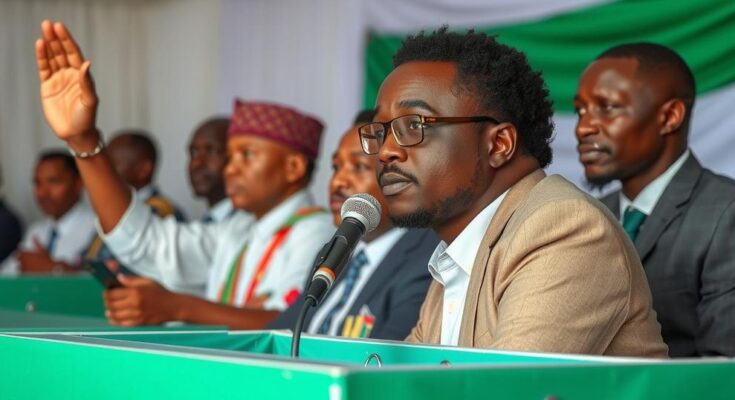The ruling Convention for the Renewal of the Comoros party won 28 out of 33 parliamentary seats in Comoros’ recent elections. The results are pending validation by the Supreme Court, with some opposition parties boycotting due to allegations of fraud. President Azali Assoumani has retained his significant political power, having enacted changes to constitutional term limits.
In the recent parliamentary elections in Comoros, the ruling party, the Convention for the Renewal of the Comoros (CRC), secured a resounding victory by winning 28 out of 33 seats. This favorable outcome confirms the continued dominance of President Azali Assoumani’s party within the Indian Ocean archipelago. The election results were disclosed by the electoral commission and are pending confirmation by the Supreme Court. Notably, several opposition parties chose to boycott the election, voicing their concerns over allegations of electoral misconduct by the CRC.
The Comoros archipelago, located off the east coast of Africa, comprises three primary islands and has endured a tumultuous political history marked by numerous military coups since achieving independence from France in 1975. President Assoumani, a former military officer, first came to power in 1999 after a coup that ousted the sitting president. Following a brief interlude out of office in 2006, Assoumani returned to the presidency following his victory in the 2016 elections and has since maintained his leadership by securing three consecutive electoral wins. In addition, he enacted constitutional amendments in 2018 that permitted him to bypass term limits and dismiss an earlier agreement requiring the presidency to rotate among the islands.
The elections in Comoros reflect ongoing political instability and controversy surrounding electoral integrity within the nation. President Azali Assoumani’s long tenure and the dominance of his party, the CRC, have raised questions regarding democracy and governance in Comoros. The political landscape is complicated by the history of military coups and a lack of confidence expressed by opposition factions, further complicating the governance and electoral processes of the country. Understanding the implications of these recent electoral results is crucial for comprehending the future political direction of Comoros.
The electoral victory of the Convention for the Renewal of the Comoros consolidates President Azali Assoumani’s control over the parliamentary landscape, amidst an atmosphere of boycotts and allegations of electoral fraud. This situation highlights the ongoing concerns regarding democratic processes and stability in Comoros, amid the backdrop of its turbulent history and Assoumani’s enduring influence over the political sphere.
Original Source: www.seattletimes.com




